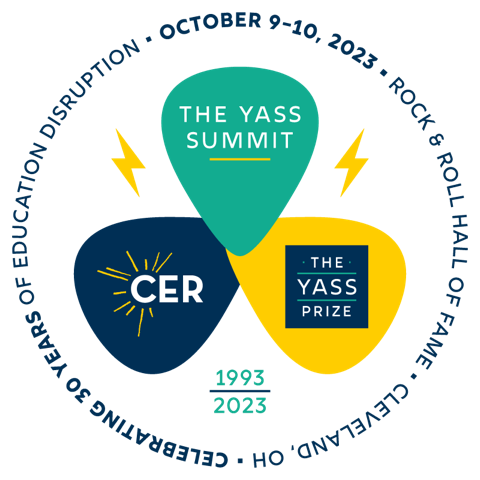End of Summer Blues...and Barbecues
And about that Labor Day thing...
It’s here already. The end of summer. Many of us are getting the blues just thinking about next Tuesday, while getting ready for our Labor Day gatherings and final summer fun. Let’s pause, though, before we crack open a cold one to ponder what the holiday once meant, and what it should mean for us all, today.
Once upon a time in America, hordes of immigrants descended on this land in search of something better. From the schools to the sweatshops, they took jobs that paid little and demanded much. Haste, greed and neglect soon became the norm in the American workforce. Labor unions stepped up to collectively support and advance the rights of people to work and be given adequate wages, benefits and a quality environment.
Protections were secured, enlightened leaders prevailed and conditions improved, thanks to early Labor activists. But despite progress over decades, some unions still like to operate like it’s the 1930s. That’s particularly clear as our kids finally get settled back into a new “school”* year. A quick look at any news shows how far afield the teachers union have gone from their initial mission.
Oh, they will take credit for Labor Day this weekend and celebrate their “accomplishments.” But as the Nation’s Report Card reminds us every so often, those accomplishments have everything to do with collective bargaining and nothing to do with achievement.
So this Labor Day let’s remember as you gather ‘round the barbecue, that we should commend not a movement for labor, but the labor of great teachers, the labor of great education innovators and most of all the labor of students, who when they have access to great education, are able to reach their full potential. Because the system the teachers unions support does not.
Breaking News: The Public Agrees
“Americans’ satisfaction with the K-12 education system has tied for a record low at the start of the 2023-24 school year, according to a poll Gallup released Thursday.
“Only 36 percent of Americans today are completely or somewhat satisfied with U.S. education, equaling the low seen in 2000.” The Hill newspaper
A Case Study in Union Transgressions
The Urban Public School Monopoly. That’s what our friend Jeff Yass calls the array of entities who are opposed to education freedom for children trapped in failing schools, because, well, it’s their monopoly, and it’s nothing like the game.
The education freedom he is talking about is manifesting itself in a proposed program called Lifeline Scholarships which would allow students to take a portion of state money and be able to leave their public school if it doesn’t suit them. And that’s the rub. As he writes in Tuesday’s Wall Street Journal,
“Teachers unions need to kill Lifeline Scholarships in the crib, because they know that Lifeline Scholarships will work, allowing students to leave their schools. Students attending dangerous, failing public schools are generally low-income. Providing resources to these students will create a stampede out of deficient public schools as evidenced by the long waiting lists for charter-school seats and tax-credit scholarships.”
As has long been the case, ideas to improve, reform, expand opportunities, and bring innovation to education become a game of political football and preservation of the status quo. Hopefully, politicians in Pennsylvania and across the nation will do the right thing, and “fight for families’ right to self-determination, especially for poor children trapped in failing schools.” We can only hope - and pray.
Education’s Surprising Presence at the GOP Debate
Republican Presidential hopefuls kicked around a few education issues at last week’s candidates’ debate (see recent Forbes oped on the subject). Some debaters came out strong for choice; there was talk of the need for improved civics education; education innovation came up; a couple of swipes at the teacher unions were made; and the quadrennial idea of eliminating the U.S. Department of Education was raised. But, as I say in my Forbes piece, the biggest issue that was only marginally touched on is that the return on investment of the billions of dollars currently spent on education is a student achievement record that, for most, is, at best, mediocre and for far too many, is a complete failure. The trillion question for the next debate: Where is that money going and who really should be in charge of deciding?
When Does a Trend Become a Boom?
The National Microschooling Center’s Don Soifer, a Yass Prize quarterfinalist, spoke with Dana Perino on FOX about the growing microschool trend. As Don said in a recent Wall Street Journal article, since the pandemic the number of microschools has increased to where, today, approximately 125,000 micros are in operation across the country. And, speaking of microschools, it’s worth noting the comments of another Yass Prize awardee, Janelle Wood, founder and CEO, of the Black Mothers Forum who, in a recent interview with a local ABC morning show said, "We're just this army of moms that have come together to really focus on the wellbeing of our children and creating safe and supportive learning environments for them."
And…
On September 14th, Janine Yass will be with us and many fabulous Yass Prize alum to announce the 64 Quarterfinalists for the 2023 Yass Prize. The event will be live streamed from Washington, D.C., so mark your calendar, and follow @YassPrize on X (aka Twitter) to get the scoop on where and how to join!
Finally a FOMO Alert!
A few seats are still available for the October 10 The Yass Summit at the Rock and Roll Hall of Fame. You don’t want to miss out on the evening’s celebration at the Cleveland Museum of Art or miss the special announcements that are going to be made, including the 32 semifinalists for the 2023 Yass Prize! Request your exclusive invitation today!
There’s a little asterisk by the word “school” in my first piece about Labor Day. Any idea why? I invite your guesses!
See you in September! Enjoy your weekend and stay safe! - Jeanne





We should organize society, our public school systems and job training programs, around the concept of collective ownership instead of private businesses.
REMOVE MONEY, REMOVE CORRUPTION
If every worker got in exchange for their professional careers everything that they needed to have a happy, balanced life in a safe and healthy world governed by fair laws and modern practices, then our use of science and ethics to generate daily goods and services, as basic human entitlements, will have fulfilled the purpose of socialism: to ensure “universal protections for all by all” without using money anymore or national currencies to uphold private capital, maintain structural wealth, or support banks and financing and other profit-making activities.
#ScientificSocialism